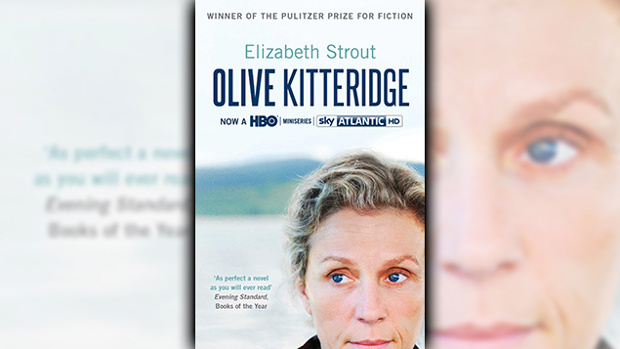Stephanie Jones: Book Review - Olive Kitteridge by Elizabeth Strout
- Publish Date
- Friday, 30 January 2015, 10:46AM

- Author
- By Stephanie Jones
Olive Kitteridge has spent some years now being justly celebrated. It earned author Elizabeth Strout the Pulitzer Prize in 2009, and six years on, as it is reissued in concert with a television adaptation starring Frances McDormand, the story of retired schoolteacher Olive Kitteridge and the folk of the small town of Crosby, Maine has lost none of its power.
A short-story collection that reads somewhat like a novel owing to the omnipresence of the titular character and the unity of Strout’s thematic concerns, Olive Kitteridge weaves together lives and decades without ever losing sight of the enigmatic figure at its centre. Who Olive is turns out to be something of a mystery even to her, and she changes depending on who is regarding her.
Olive’s husband Henry is loyal and loving perhaps to a fault – a condition that baffles many – while son Christopher, whose first marriage at age 38 to a woman he’s known for six weeks inspires a petty vengefulness in Olive, evolves from sullen teenager to instant father and stern censurer of what he perceives as Olive’s chronic changeability of mood.
In many ways Henry is Olive’s foil, alert to female vagaries thanks to his mother’s volatile mental health and his wife’s periodic overbearance, driven by “the need to keep everyone content.” In the opening story, ‘Pharmacy’, Strout presents the younger Olive as intermittently rage-filled by her prison of homemaking and jealous of her husband’s bond with his pharmacy assistant.
Later, Olive’s widowhood leaves her without friend or anchor, helpless in the face of unrelenting days. Death and bereavement pervade the text and Strout can evoke a mood of blistering sadness with a handful of sentences, but the overall effect is stimulating rather than melancholic. In revealing how Olive is bookended by depression, through the suicide of her father and the struggles of her son, Strout forms a picture of a woman flawed but striving, refusing to go under.
In ‘Incoming Tide’, we see Olive through the eyes of a former student (who had liked her; not everyone had); as lovely, like a sapling under the sun, walking outside in an apron as if from a different century, bearing a “forthright, high-cheekboned expression.” Teaching is one of many roles of her life, and a reminder of one of the worst fates of all, intelligence and potential gone unused.
Taken story by story, Olive Kitteridge has a forensic quality, each piece pared back to the most essential details, some beginning elliptically (as in the stunning ‘Tulips’) and the elusiveness falling away as Strout homes in on her theme. As a whole, the text betrays the ferocious power of Strout’s imagination, and the scale of her empathy. With exquisite prose she sculpts a life with painstaking care, imparting the full weight of human endeavour, sorrow and frailty.
Take your Radio, Podcasts and Music with you

